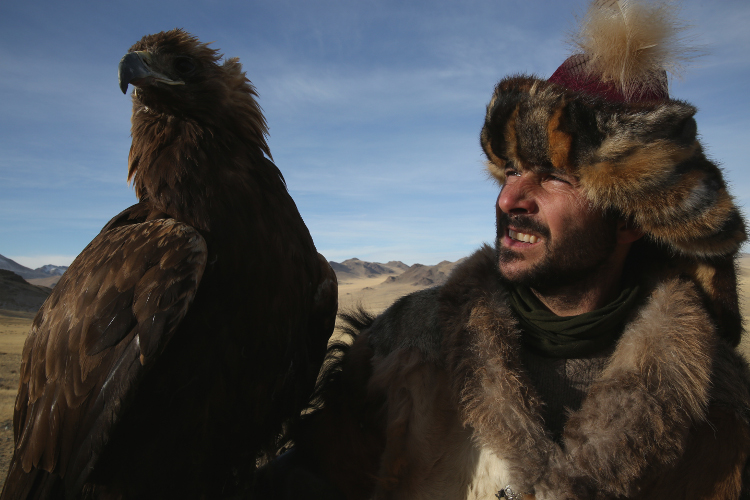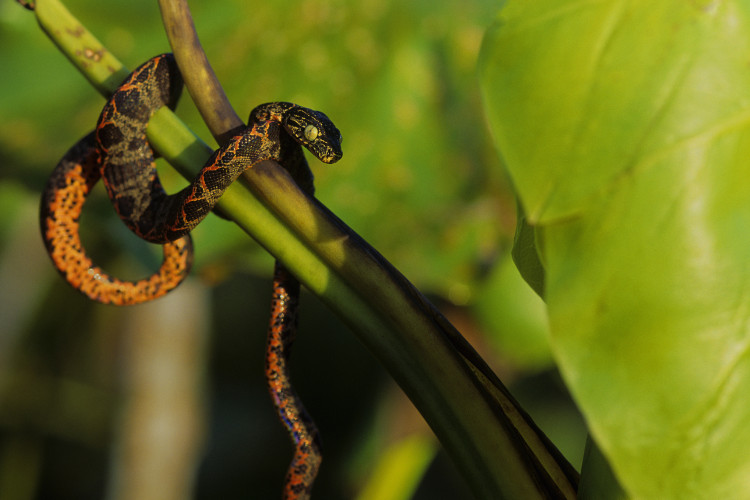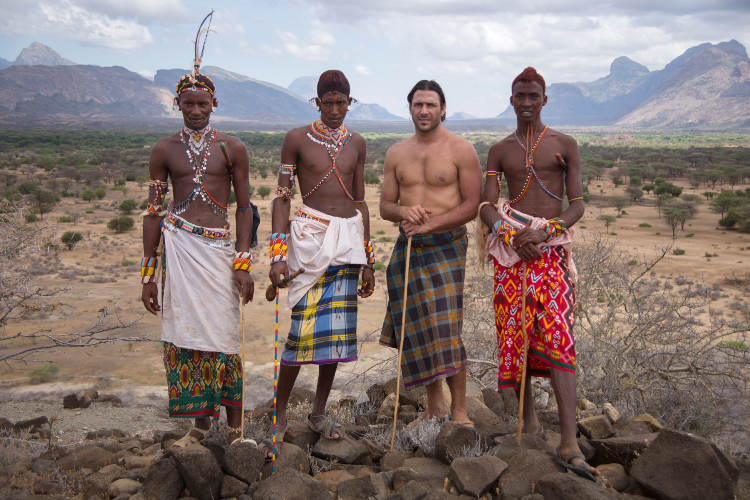But despite such exotic experiences, simplicity remains at the core of Audel’s attitude to travel – with just a toothbrush, passport and smile in tow he can have an epic adventure in any locale.
We caught up with the off-beat adventurer for a sneak peak into some cultures and countries most of us can only ever dream of exploring.

My last trip was to Morocco to explore some of the different cultures around North Africa.
Ever since I was little I was always looking at books about snakes or tropical fish and all these animals and plants that lived in the remote tropics. I knew when I was old enough travel was going to be a big part of my life, to go and see these animals that I was fascinated by.
Window seat, because you’ve got a wall to sleep on and when you land or take off you get a chance to look out at the scenery and get an idea of what you’re in for.
I’m still using the same backpack that I had when I was 17 – it must be 25 years old. I also travel pretty light. Sometimes all I need is a toothbrush and a passport and I’ll be fine.
Last year when I worked on a series called Survive the Tribe with National Geographic, we went to six different countries – Mongolia, Kenya, Namibia, Arctic Canada, the Solomon Islands and Ecuador. But I couldn’t tell you which was my favourite place, they were all so unique and I was just so inspired by all the different lifestyles.
I used to be an expedition leader in Ecuador leading rainforest trips. During one excursion we were taken in by some indigenous people, one of whom used to live with the Huaorani tribe I had previously lived with, so we were somewhat familiar with each other. They gave us dinner and we had this great evening sharing food and laughter.
The next morning one of the elders had an idea that he might be able to get some money from us for having let us stay. We obliged and they asked for a seven dollars, so we handed over a five dollar bill and two one dollar bills. But these folks have never really understood the concept of maths, so they looked at the three notes and thought we were short changing them. They asked for more money, and it began to escalate till I remember they were asking for 78 dollars, which we gave them. But because it was still made up of a concoction of different notes rather than 78 individual bills the elder was getting more and more infuriated. And when they get furious these people deal with their problems by throwing spears. So when he ran to his hut to get his rifle and spear I had to quickly get the group out of the camp. We walked for two days through basically uncharted jungle to make sure we couldn’t be found and possibly killed.

When I graduated from high school I had an opportunity to go to Ecuador. I don’t come from a family of travellers so naively I thought I could just find a place next to a river and live in my tent for about a month till I ran out of money. I attracted a lot of attention from the locals, whenever I’d be out fishing you’d see these little kids hiding behind bushes kind of spying on me. But I was doing the same, learning how they lived, how they fished and hunted.
After a while the local people invited me into their homes. It didn’t take long for me to feel really safe and really fascinated by this whole other way of life. I wound up spending about three years of my life there on and off.
With every single place I travel to I try to be aware of the quality of people’s lives and how they utilise the resources they have at hand. I am really interested in different family dynamics and how kids are being raised. This exposure to other cultures teaches us that there are so many other realities out there that are better than what we’re just being told to have.
For little windows of my life I was more or less raised by the Quechua and Huaorani tribes in Ecuador. They’re spectacular hunter-gatherer people. They’ll always be the first people I’m going to go to if I need something.
There are a lot of bizarre things out there but there’s usually a reason behind the odd behaviours, rituals and festivals that people have. And these festivals, which have been going on for thousands of years, have been perfected for their reality.
If somebody from Africa were to spend a couple of evenings with some people from Europe or the US, they would definitely have some disagreements with how we do things.

When I was in Mongolia, I was offered a plate of what looked like stomach. It was served whole and they cut it open like a loaf of cinnamon bread and inside was what looked like butter - though I wasn’t sure. By the time someone could translate my questions I was informed that it was, in fact, butter-filled horse stomach.
My top survival tip is to observe how other people are doing things, be open and try to figure out the background reasons for why they are doing some things.
When I was a kid my parents brought me back a stuffed iguana from their trip to Mexico. But it was the most horrible, most macabre stuffed iguana. It had marble eyes and just the most horrid stitching, and by the time it made it from Mexico to the United States parts of it were beginning to fall off.
The best was when I was 19. I had this idea to travel to Ecuador but I thought I could never afford it and someone in my life told me: don’t ever let money get in the way of your dreams.
I would want to be home in Washington State. It’s a beautiful part of the world, it’s where my family is, it’s where my friends are. Travelling isn’t just about going to remote places, you could visit the town next door and if you have a really good positive attitude it can be just as amazing.
Do the best you can to learn a language, even if it’s just a few words. And acknowledge even the most unassuming people – a lot of people around the world can really identify with a smile.